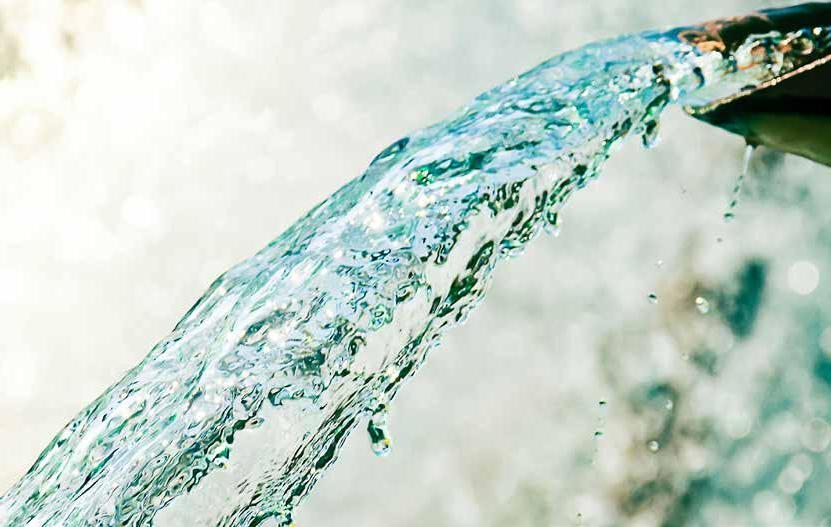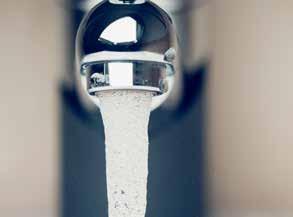
4 minute read
Chair’s comment
The cost of non-payment
Municipalities are under increasing pressure as users struggle to pay their bills. Without intervention, the situation could spell disaster for water supply in the future.
Advertisement
By Dan Naidoo
The Covid-19 pandemic and resultant lockdown have had a severe impact on the South African economy. Many users can no longer pay their bills, and municipalities’ revenue streams face the prospect of drying up.
The City of Cape Town recorded R900 million in outstanding rates and services payments in April alone – a one-third drop in income. A few months into lockdown, many of South Africa’s metros are reporting a drop in income that amounts to billions. The stark reality is that this non-payment, in a scenario already under serious financial pressure, could have a devastating effect on the general cash standing of municipalities.
Service delivery, including the provision of water, is the cornerstone of all economies. Non-payment affects the entire value chain upstream, and if our five big metros are already reporting tough times, how can we expect the smaller, poorer municipalities to survive?
We face a huge risk if there is no cash to sustain services.
Effects on water provision The job of sustaining services that are critical to the national economy – such as water supply – will be very challenging going forward. Eskom is a perfect case study. Soweto’s R18.9 million in unpaid bills to the power utility (as at 30 June 2019) is an unfortunate example of what water utilities are likely to face.
The corruption issue aside, Eskom is a very good utility, but it is crippled by the enormous outstanding debt from municipalities. Dan Naidoo, That is what chair, WISA we are going to see happen with water if municipalities cannot afford to service their debt because their reliable base of paying users is eroded by the impact of the pandemic.
It’s a vicious circle that will impact not only supply, but also investment in equipment, upgrades, maintenance, and preparation to meet growing future demand. How can you invest in major capital expenditure if revenue streams are starting to slow down?
We are also faced with a scenario in which domestic water usage is increasing despite payments decreasing. Municipalities are then faced with a

situation in which they must pay the water utility for the supply but are not recouping the equivalent to fund the purchase.
The situation of the rich subsidising the poor is not new in South Africa, but what if that paying base of ‘the rich’, on which municipalities have long relied, starts to teeter? The reliable payers are now also at risk, including the big payers or businesses that are using much less water due to lockdown. And the longer people cannot run their businesses, the greater their chances of not coming back. The ability to service everyone is then at risk.
Added to this, the challenge of non-revenue water (NRW) creates the perfect storm. Municipalities already lose out on revenue from as much as 60% of the water that they purchase to sell on to users as a result of leaking pipes, non-payers and illegal connections. Effectively, this inefficiency means that for every 100 units municipalities buy, 50% to 60% of that water is lost. While the challenge of NRW has been one that we’ve been battling for a long time, it is now more critical than ever to address it. By recouping some of the wastage, municipalities could see significant savings.
Reskilling for resilience Typically, any disaster is followed by a period of recovery. However, the Covid-19 pandemic has found us facing a new normal with no recovery phase. And unfortunately, science has not catered for living through a disaster with no certain end point.
This has highlighted the severe need for us to build more resilient systems. And in order to do this, we need a level of reskilling to think more economically and ensure that we build financially feasible, sustainable and resilient systems. We’ve got all the scientific solutions, but they mean nothing without the ability to implement them.
The water sector cannot stop functioning and Covid-19 has made the

supply of water more critical than ever. It is crucial that we stabilise the sector while we ride out this crisis. We also need to ensure that we protect our essential staff, as the loss of key people could have further dire consequences on our ability to supply water.
South Africa is doing a good job of trying to secure water supplies for more people, especially in informal settlements, adding water and sanitation, and sending tanks to remote areas and schools. But it comes at a price.
Water is not free, and the country must be sure that it has the capacity to fund and maintain this critical infrastructure into the future.










